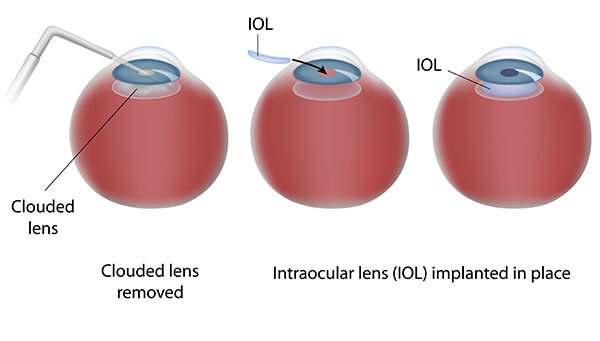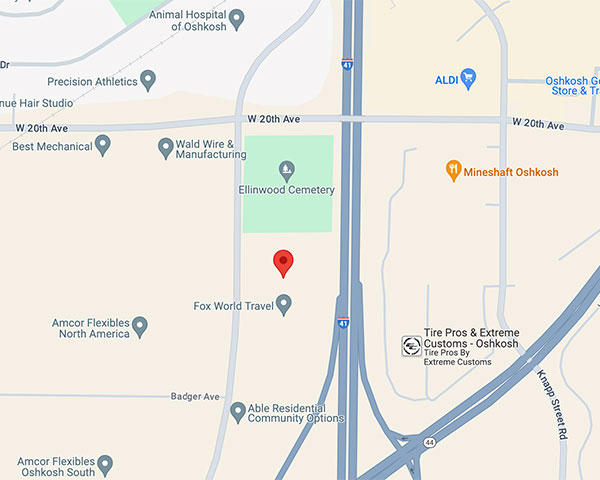
Cataract Surgery
How is Cataract Surgery Done?
The cataract is removed through a small incision in the cornea. Years ago, the incisions were large requiring sutures and a lengthy recovery. Drs. Merfeld, Larson and Raven use a technique with microincisions (as small as 2.2mm) to remove the cataract. This allows the surgery to be done without any sutures at all. Because the incisions are so small, the cataract is broken into tiny fragments inside the eye and then removed through a micro-tube. An implant is then placed where the cataract used to be.

The surgery is extremely delicate but does not take a long time. For most patients, the surgery lasts between 10 and 15 minutes. The eye is anesthetized so that no pain is felt. An occasional feeling of cool water on the eye is common. Medicine is used for sedation to make the experience comfortable.
Why is an Implant Used?
Before we had implants, people had to wear thick glasses after surgery. Implants have dramatically altered outcomes of surgery for the better. Now, instead of thicker glasses, most people have thinner lenses after surgery. Often people can pass a drivers test without glasses at all when they previously had needed glasses their entire lives.
Can I Get Rid of My Glasses After Cataract Surgery?
For many people the answer is “Yes.” Significant advancements in intraocular lens technology have allowed us to correct for astigmatism and higher order aberrations. This allows many patients with unusual glasses prescriptions to be able to see well without glasses. The most exciting lens is a bifocal implant which has allowed many people to get rid of the their glasses for everything! With these lenses, people in their 80s and 90s have been able to see 20/20 at distance and read small print – all without any glasses correction. Our doctors if these lenses would work for you.
Can I Have Cataract Surgery if I Have Macular Degeneration?
Yes. There are many eye conditions which can limit vision besides cataracts. Someone with macular degeneration or glaucoma may not be able to see as well as if the conditions were not present. Drs. Merfeld and Larson will give you a comprehensive eye exam before surgery go over all aspects of your ocular health.
Are There Risks With Cataract Surgery?
There is no surgery that is completely risk free. Fortunately, the risk with cataract surgery is extremely low. Infection rates are approximately 1 per 1000 cases. This means there is a 99.9% chance of not having an infection. Many other complications can happen but are fortunately extremely rare. You will be given a detailed explanation if you are considering surgery.







